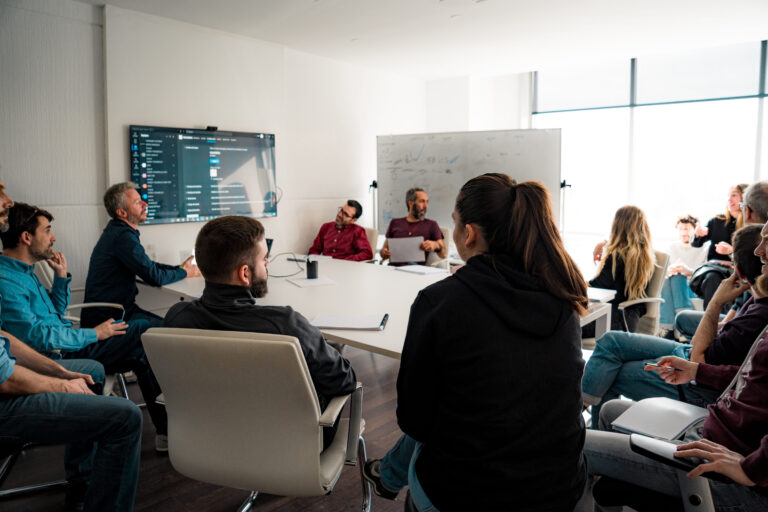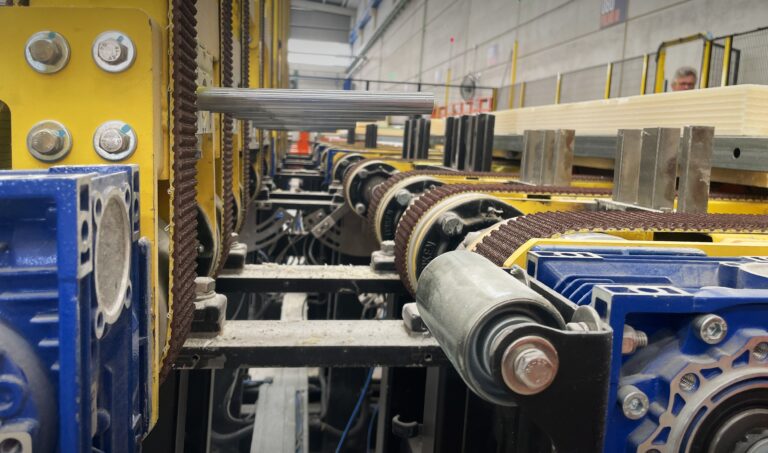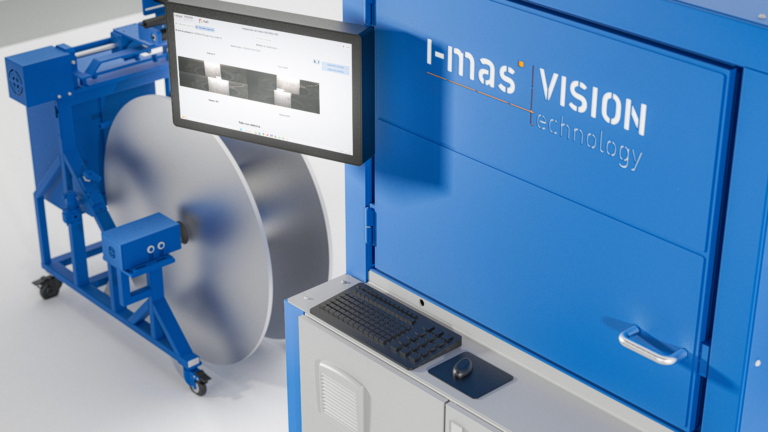At i-mas, we are fully committed to our work and strive to drive advancements and the transformation of the Industry 4.0. Our engineering and artificial vision department boasts extensive knowledge and technologies in industrial automation and robotics, fundamental in our environment.
Just over a year ago, we decided to join the Spanish Association of Robotics and Automation (AER Automation), an organization that brings together the main players in the automation and industrial robotics market.” This association allows us to gain knowledge and share experiences in a cross-cutting manner, which significantly contributes to improving competitiveness and business efficiency in all sectors of demand.
We had the privilege of conversing with Alex Salvador, the mind behind AER Automation, to explore and immerse ourselves in the exciting world surrounding this organization.
Alex Salvador
Managing Director | SME Consultant | Interim Manager
Alex Salvador holds a degree in Economics from the University of Barcelona, an MBA (UAB-UB-UPC), and a Master’s degree in Cultural Management from the UOC. He has built his entire professional career in the industrial business environment, holding managerial positions in both multinational corporations and SMEs, in the areas of sales and marketing, as well as general management. He has teaching experience and has recently specialized in talent management and organizational transformation. He combines his work at the helm of AER Automation (Spanish Association of Robotics and Automation) with his consultancy specialized in SMEs.
What motivated the creation of the Spanish Association of Robotics and Automation? How did you come to this conclusion?
The Association was founded in 1985 by some “robotics enthusiasts” and engineering professionals, true visionaries who undoubtedly anticipated the importance and necessity of automating the Spanish industry. A true “divine mission,” as the Blues Brothers would say. In 1987, we became founding members of the International Federation of Robotics (IFR), and since then, we have been its sole official representative in Spain. This affiliation enables us to have the most reliable and representative data at the Spanish level on industrial, service, and mobile robotics. The 1990s marked a diversification of the membership base, first towards computer vision and later towards automation. In 2022, AER Automation reached two significant milestones: we surpassed the historical threshold of 100 members and joined the CEOE as the sole representatives of Spanish robotics and automation.
What services does AER Automation offer to the industry?
As the “employer’s association” in the robotics and automation sector, we represent our members to government agencies and various stakeholders, providing value through networking, outreach, and access to qualified talent. We always work with humility and vision, based on our triple mission: SMEs / Talent / Sustainability, and we have open programs in each of these areas.
How does it differ from other organizations in the sector in terms of aspects or services?
That’s easy. The AER working groups – Growth, Marketing, Training, and Innovation – currently comprise over 150 executives from the Industry 4.0 sector, contributing value and collaborating selflessly not only for the association but also for the sector and the country. Among them are CEOs and directors of sales, marketing, HR, and innovation. If we add the more than 30 members of the AER Commissions – Service, Education, and Startups – along with the essential and highly relevant work of the Board of Directors, we are talking about 200 people supporting the #AERproject. The involvement of our members in the association’s development is our greatest differential value.
What have been the biggest challenges you have achieved during your history? How did you manage to overcome them?
Being realistic, and although the answer may lack glamour, it was mainly through financial management during the association’s low periods. Fortunately, for the past 5-6 years, our association’s growth has been in the double digits, having tripled the number of members in the last 3 years alone, reaching 125 members currently.
What are the 3 most significant moments in the history of AER Automation that have contributed to its good reputation in the sector?
If only three have to be singled out, and excluding the foundation, they would undoubtedly be 1987 (IFR foundation), 2009 (organization of the 40th ISR in Barcelona), and 2022 (adherence to CEOE). Not forgetting the publication in 2022 of the Association’s first code of ethics in its entire history.
What future challenges do you have on AER’s agenda?
1) To contribute to establishing the public-private agenda for the automation of Spanish SMEs.
2) To ensure access to qualified talent in the industry and a human-centric approach to the development of Industry 4.0 in our country.
3) To advocate for sustainability and circular economy values.
What would you highlight about the professional work of the association?
The most exciting challenge of my professional career, without a doubt.
What are the main challenges facing AER Automation and how can they be addressed?
I would mention organic growth through strategic partnerships. At the moment, we are developing AER Automation’s strategic plan for the 2024-26 period, and issues related to joint ventures or M&A are always the most complex to address. But we have already embarked on the journey with enthusiasm, supported by the great work done by the Board of Directors and AER GTs.
What trends do you think will emerge in the future regarding robotics and industrial automation? What future do you foresee?
Spain urgently needs to automate its SMEs, and now we have the funds for it. The pace of automation in Spanish small and medium-sized enterprises that we are able to implement will shape the coming decades. I would highlight the general expansion of industrial robotics into sectors beyond automotive (such as metalworking, food and beverage, pharmaceuticals, agriculture, etc.) and the sustained double-digit growth of service and mobile robotics in “beyond logistics” sectors (such as hospitality, education, cleaning, etc.). When it comes to automation in general, AER is already promoting the transition from hardware to software, with a holistic vision that encompasses the concept of Industry 4.0 as the goal. The vision must necessarily be 360 degrees, and from AER Automation, we advocate for competitive collaboration with institutions to build a future of fully automated and resilient industry, with Spain’s industrial GDP comfortably exceeding 20% in the not-so-distant future.




